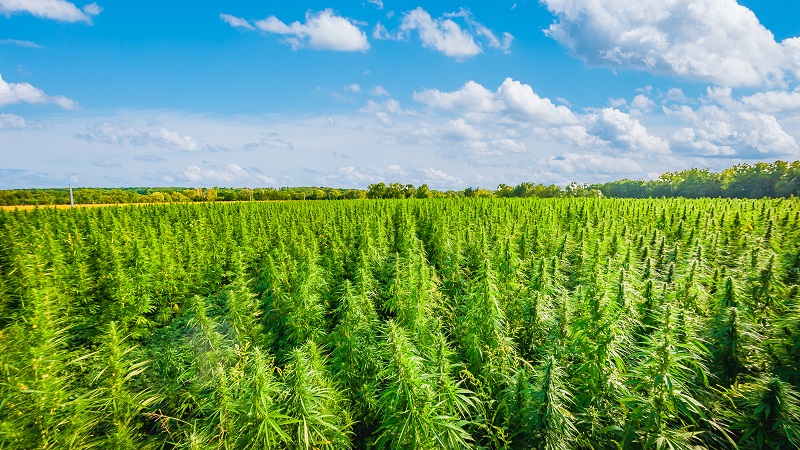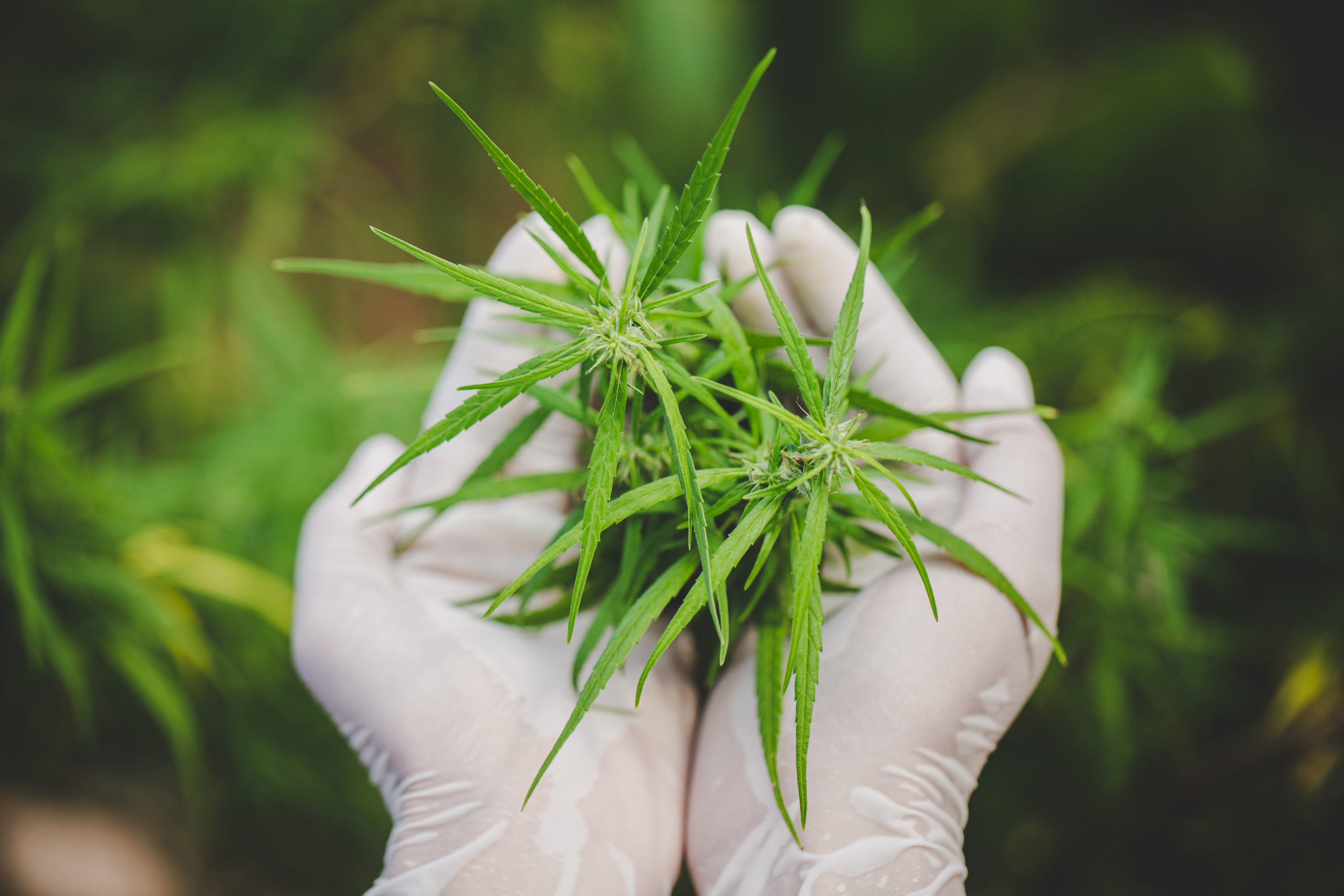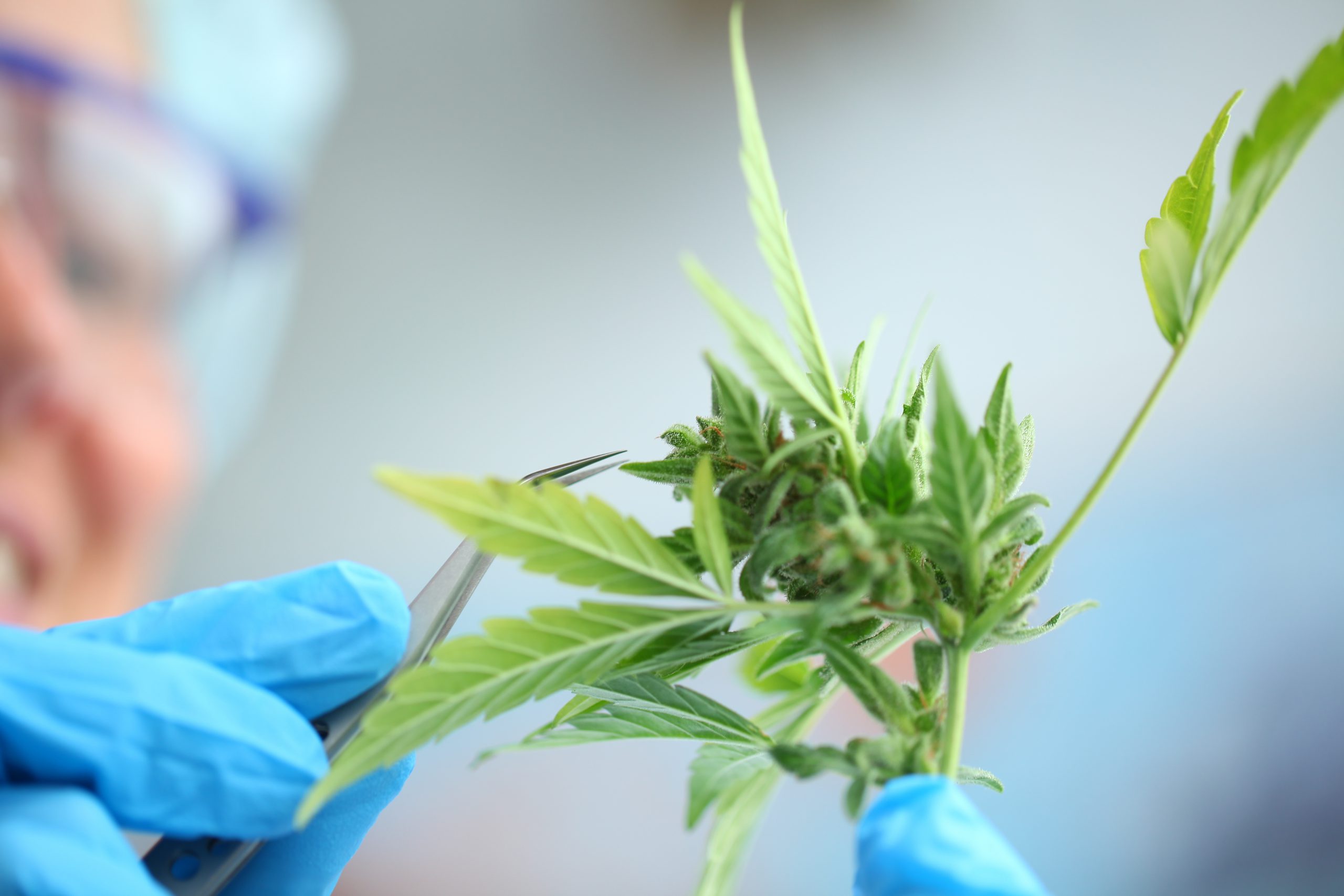CBD for Skin Care: How Does It Work?

In the human body, the skin is the largest organ and is the primary defense system against harmful pathogens, including viruses, fungus, and bacteria. Healthy skin is one that is smooth, glowing, firm, elastic, and acne and rash-free.
However, the skin can be damaged by multiple factors such as skin inflammation, irritation, clogging, and allergies that cause swelling, redness, itching, burning, pain, and rash or acne breakout.
CBD is one of the most effective treatment options for a range of skin conditions.
The natural origins of CBD
CBD is the abbreviation for cannabidiol, which is one of the components in hemp and marijuana plants. CBD is extracted from the plant and is mixed with a carrier oil, which could be an essential oil or other therapeutic oils such as olive, coconut, or hemp oils to make body oils, facial cream, eye cream, sleeping mask, and other CBD-infused products. CBD used in skincare products is non-intoxicating as they do not contain THC (tetrahydrocannabinol), which is the key intoxicating agent in marijuana.
How does CBD work in skincare?
The endocannabinoid system (ECS) is composed of endocannabinoids that are neurotransmitters that bind to receptors known as cannabinoid receptors (CBRs). The ECS and the cannabinoid receptors are believed to regulate a host of biological processes, including immune function, pain sensation, appetite, mood, and memory, apart from regulating CBD’s pharmacological effects. There are two types of cannabinoid receptors– CB1 and CB2 receptors. While a majority of CB1 receptors are located in the brain, CB2 receptors are found in the immune system.
A review on the role the endocannabinoid system (ECS) plays in skin health and disease and the therapeutic potential of CBD found that ECS played a role in many biological processes in the skin such as growth, proliferation, cell differentiation, cell death, and hormone production in cells of skin and hair. The main physiological function of the skin ECS relates to regulating skin cell proliferation, survival, and differentiation, apart from controlling the immune competence of skin cells. When this delicate balance is disrupted, it can lead to many skin conditions such as acne, allergic dermatitis, excess oil on the skin, psoriasis, itching, pain, and even skin cancer.
Evidence supports that CB2 receptor activation leads to anti-inflammatory effects. CBD activates the CB2 receptor, which makes it a potential therapeutic agent in treating many skin conditions that are due to inflammatory processes such as acne, psoriasis, eczema, allergies, and others.
Efficacy of topical CBD products
Topical (transdermal) application of CBD-enriched skin products delivers CBD through the skin. Topical administration has many advantages over the oral route as it bypasses the complex metabolic process of the oral route, thereby making CBD more bio-available. Applying CBD facial cream, eye serum, or face serum allows the therapeutic drug to be used for a longer period of time while minimizing side effects or the risk of overdose.
Use of CBD in treating different skin conditions
Acne – Acne has been proven to be an inflammatory condition. Although there are other factors as well that trigger acne, topical CBD application can fight inflammation while soothing the irritated skin. CBD facial serum is beneficial in reducing breakouts and acne-related redness.
Studies highlight the anti-inflammatory properties of topical CBD products such as CBD oil, facial cream, and eye serum. Research also indicates CBD may help reduce excess oil (sebum) production by regulating the skin oil flow.
A 2014 study evaluated cannabidiol’s anti-inflammatory and sebostatic (controlling excess oil production in the skin) effects on the skin. The researchers found that the administration of CBD inhibited excess production of skin oil and exerted anti-inflammatory actions. Researchers recommended the use of CBD in treating acne vulgaris due to its anti-inflammatory and sebostatic effects.
Oily skin – One of the reasons for acne and other skin conditions is excess oil production. CBD facial cream, serum, or other CBD-infused topical products can help control oil production, which helps reduce acne breakouts and improve skin health. CBD’s anti-inflammatory effects further help reduce the soreness, burning, and itching caused by acne, which leaves the skin less sensitive, calmer, and with reduced redness.
Skin dryness and itching – CBD skin and facial creams keep the skin hydrated and reduce dryness of skin and the resulting itchiness and discomfort. Chronic itching (pruritus) can be due to many conditions, and many times, standard treatment measures fail to address the condition. Research has thrown the spotlight on the role played by cannabinoid receptor activation on the sensory nerve fibers in the skin. Lack of CB1 and CB2 receptors have been implicated in allergic contact dermatitis, which leads to severe itching. In a study, researchers applied a CBD cream on 22 patients suffering from chronic itching and found a good anti-itch effect in a majority of patients. On average, there was an 86.4 percent reduction in itching while there were no side effects of CBD, such as a burn or allergic reaction.
A study found that 81 percent of patients undergoing hemodialysis (a treatment for end-stage kidney failure) experienced complete resolution of chronic itching, which is a common symptom of the condition, with CBD.
Researchers theorized that CBD could switch off signals which transmit signals that indicate itching from the skin nerve endings to the brain. When CBD is combined with skin-soothing elements in facial creams, eye serum, body oil, such as olive oil or almond oil, it can eliminate chronic itching and calm the skin down.
Sunburn, skin allergies, and sensitivity – Another potential benefit of topical CBD application is its significant soothing properties. CBD has been shown to have skin-calming effects, which makes it an ideal choice to treat skin sensitivity-related issues such as redness and rash.
Excess exposure to ultraviolet radiation and environmental pollutants are implicated in many skin conditions, including sunburn, skin allergy, sensitivity, and premature aging. Melanin is a pigment that is produced by special skin cells called melanocytes and has a protective effect against external stressors such as UV rays and pollutants.
Researchers studied the effects of CBD in encouraging melanin production (melanogenesis) and found that CBD increased the amount of melanin produced. This suggests the potential of CBD in protecting the skin against external stresses such as toxins and UV rays that are implicated in skin sensitivity, sunburn, and allergies.
Anti-aging benefits – Aging is a natural biological process where there is a loss of skin firmness and elasticity. The skin health proteins are called elastin and collagen, which are responsible for maintaining the skin’s texture, firmness, and elasticity. With less collagen being produced with age, there is a gradual loss of skin firmness, and the skin continues to grow thinner and less firm. Besides, there is also a decline in natural skin oil production that keeps the skin hydrated and fresh. A combination of these factors causes fine lines, wrinkles, and sagging, while there can be increased dryness and redness.
Environmental conditions or pollutants also contribute to premature aging and impact skin health. Pollutants and sun damage reduces elastin and collagen production as well with resulting sunspots, deep lines, wrinkles, skin burn, and hyperpigmentation. Free radical damage is implicated in the consequences of aging. Free radicals are a natural byproduct of metabolism, while they are also present in pollutants and radiation. Smoking, alcohol, and junk food can also increase the production of free radicals. These radicals set up a chain of reactions (known as oxidation reactions) at the cellular level and damage healthy cells (oxidative stress).
Antioxidants are naturally-occurring substances that fight and neutralize free radicals and reduce oxidative stress. Some natural antioxidants produced in the body are coenzyme Q10 and glutathione, while vitamin C and E, present in food sources, are considered to be the most powerful antioxidants. However, with age, the efficacy of these antioxidants to combat free radicals gets diminished.
CBD is essentially derived from a plant source, and as is the case with many plants, CBD also possesses excellent antioxidant properties. The antioxidants present in CBD face cream, anti-aging facial serum, or sleeping mask neutralize free radicals and help address visible signs of aging such as fine lines and wrinkles. In fact, a study found that CBD was a more potent antioxidant as compared to vitamin C and vitamin E.
When CBD-infused facial cream, serum, or sleeping mask is applied, they can help fight, prevent, and treat common signs of aging, such as:
- Inflammation
- Fine lines and wrinkles
- Collagen loss leading to loss of skin elasticity and firmness
- Skin dryness
- Dullness of skin
CBD anti-aging facial serum and creams counteract free-radical damage that leads to inflammation, skin dullness, wrinkles, and poor skin tone.
Autoimmune skin conditions – Studies have shown that CBD’s anti-inflammatory properties are effective in providing pain relief. The same properties extend to skincare, where CBD topical application helps reduce puffiness, itchiness, redness, and soreness that are commonly seen in various skin conditions, including eczema, psoriasis, rosacea, acne, among others.
Psoriasis is a chronic inflammatory skin condition that impacts the quality of life. In this condition, the life cycle of the cells in the skin is speeded up, which causes a rapid build-up of cells on the skin surface. The extra cells form red patches and scales itch and can be painful.
While psoriasis is thought to be an auto-immune condition, other skin cells, such as keratinocytes, are also believed to play a role. Keratinocytes are the most common type of cells in the skin, which make a protein called keratin that imparts strength to hair, nails, and skin. Keratinocytes start to build-up rapidly in psoriasis, leading to many of its symptoms, including redness, dryness, soreness, and patches.
A study sought to investigate the ability of cannabinoids from cannabis to stop the hyper-growth of keratinocytes in psoriasis. The researchers found that cannabinoids are effective in stopping keratinocyte proliferation and have a potential role in treating psoriasis.
A 2019 study by Palmieri et al investigated the therapeutic effect of topical CBD ointment on severe/chronic inflammatory skin diseases and the resulting scars.
When the topical CBD cream was applied twice daily on patients suffering from atopic dermatitis and psoriasis for three months, there was a significant improvement in the symptoms, while there were no allergic reactions documented for CBD.
The researchers concluded that topical CBD administration is an effective and safe non-invasive alternative that helps improve symptoms and quality of life of patients who have inflammatory skin conditions.
Under-eye puffiness and soreness: CBD oil, eye serum, or sleeping mask can help address under-eye puffiness or soreness. The antioxidant and anti-inflammatory properties of CBD help fight signs of aging such as puffiness, fine lines, and wrinkles while reducing visible signs of stress such as under-eye skin darkening.
How to choose the best CBD skincare products
While there are many CBD products available in the market for skin care, finding a genuine CBD-infused topical product can be challenging. The following are some of the tips that can help you know what you need to look for in a topical CBD product such as eye cream, sleeping mask, face cream, or facial serum:
- Read the ingredient list in the CBD product label. The first ingredient listed should be “cannabidiol.” It is important to note that if the label lists hemp seed extract or hemp oil, it is not an equivalent to CBD oil.
- Look at the amount of CBD in the topical skin product. Many brands list the total amount of cannabidiol in milligrams, while some products list the break-up of CBD per use. This is one of the indicators that the CBD product is legitimate.
- Check the website or ask the brand if they possess third-party certification or carry out intensive research and stringent testing concerning the purity and quality of the CBD skin product.
- Examine the packaging of CBD face cream, beauty serum, eye serum, or recovery lotion. The product should not be packaged in clear bottles or jars that expose CBD to excess air or light, which can reduce its effectiveness.
- Check the label for a list of other ingredients used in the topical CBD-infused products. To strengthen the efficacy of the product, reputed manufacturers also add other proven skin health ingredients such as hyaluronic acid, vitamin E, olive oil, almond oil, aloe vera, and vitamin C.
More articles:










